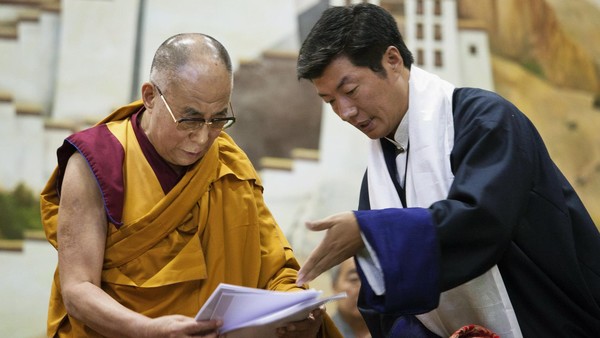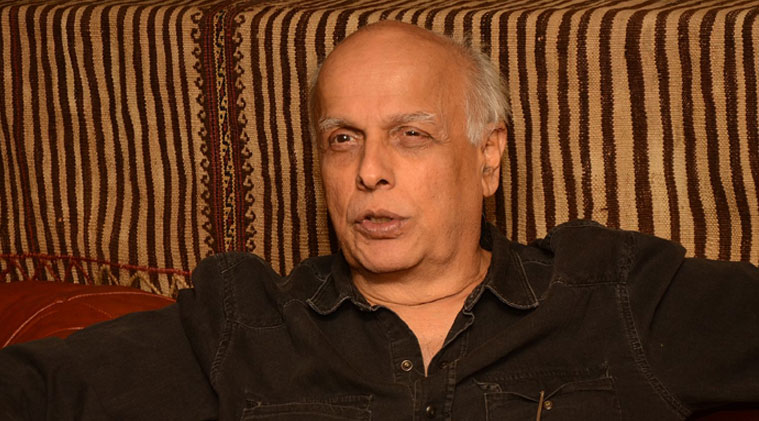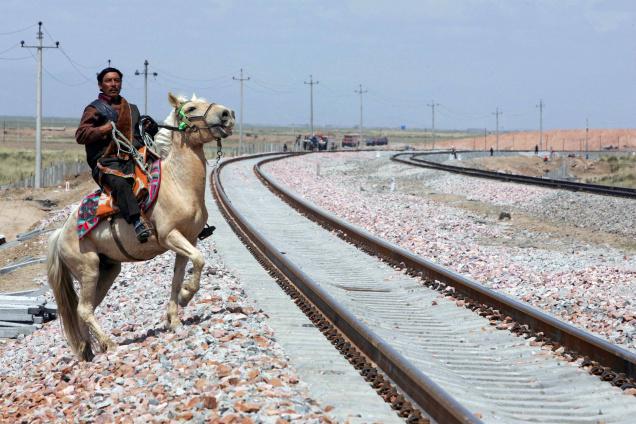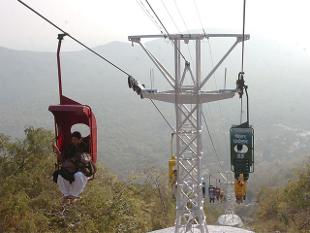Anti-Beijing protests may not remain non-violent, warn Tibetans
By Victor Mallet, Financial Times | June 5, 2014
Tibet’s leaders in exile have warned Beijing not to assume that Tibetan protests against brutal Chinese rule will always be non-violent – even if a spate of self-immolations by demonstrators has so far not harmed “even a Chinese bicycle”.
Lobsang Sangay, who succeeded the Dalai Lama as the political head of the India-based Tibetan administration, compared the situation in the Himalayan territory of Tibet with that in neighbouring Xinjiang, where Muslim separatists have launched a series of lethal attacks on Chinese targets with knives and bombs.

Mr Sangay said intense Chinese repression had forced Tibetans to turn from peaceful protests to setting themselves alight to publicise their demands for freedom and the return home of the exiled Dalai Lama, and warned that worse might follow.
Since 2009, 130 Tibetans, many of them Buddhist monks who revere the Dalai Lama as their spiritual leader, have set themselves on fire, and 112 of them have died as a result.
“Even though 130 Tibetans have burnt themselves, none of them has harmed a single Chinese person or property,” Mr Sangay told the Financial Times. “Clearly, at the stage of painful death, one is restraining oneself from harming even a Chinese bicycle.
“That restraint is there in the minds of Tibetan people themselves. But if repression continues, one can never know. It might lead to unfortunate incidents,” he said. “From peaceful protests in the streets to self-immolation – similarly in Xinjiang, you can clearly see now people are protesting in more violent forms.”
On Thursday, the Dalai Lama and Mr Sangay relaunched what they call the “Middle Way Approach” – a proposed path between repression and separatism that would lead to genuine autonomy for Tibet within a sovereign China.
Tibetan activists accuse the Chinese of destroying their language and Buddhist culture and of exploiting minerals and forests with devastating environmental consequences for south Asia’s principal watershed. The Chinese Communist party, whose forces invaded Tibet in 1950, insists that the Dalai Lama is a dangerous “splittist” bent on breaking up China – even though the two sides have held nine rounds of talks to try to resolve the issue.
To mark the 25th anniversary of the June 4 1989 Beijing massacre of pro-democracy demonstrators, the Dalai Lama issued an unusually forthright statement certain to have angered Chinese leaders. He offered his prayers “for those who died for freedom, democracy and human rights”, and contrasted China’s progress in integrating itself with the world economy with the unfulfilled task of bringing it into “the mainstream of global democracy”.
Mr Sangay told a news conference that the Chinese leadership ought to realise that the hardline policies imposed on the Tibetan people “have not worked”. He said: “All this repression is making Tibetans more resentful.”





